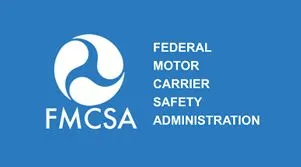- FMCSA now enforces English fluency for CDL drivers during inspections.
- Drivers must speak, read signs, and complete forms in English unaided.
- Non-compliance can result in immediate removal from service.
- Employers should verify drivers meet language standards to avoid disruptions.
A CDL isn’t just about knowing how to handle a rig; it’s also about communication. That’s why the Federal Motor Carrier Safety Administration (FMCSA) has updated its enforcement approach to a rule that’s long been on the books: Drivers must be able to speak and understand English. And now, failure to meet that standard can get you pulled off the road immediately.
What the Rule Really Means
The FMCSA English language requirement has existed for decades, requiring drivers to speak and read English well enough to interact with law enforcement, understand traffic signs, and complete written reports. But in recent years, enforcement has been relaxed. That’s changed. As of June 25, 2025, under a new truck driver executive order, law enforcement is being directed to crack down.
Here’s what’s now being enforced during inspections:
- Drivers must hold a basic conversation in English; no translators or cue cards allowed.
- They must recognize and explain common U.S. traffic signs.
- They need to complete inspection paperwork without outside help.
Failing any of these could put a driver out of service on the spot. And yes, that means a legal CDL holder could be sidelined, even if they’ve passed the driving test.
Why This Is Happening Now
This move is part of a broader push to strengthen FMCSA compliance and road safety. According to the Department of Transportation, communication gaps have contributed to dangerous misunderstandings during inspections and traffic stops. Cracking down on the CDL English requirement is seen as a way to reduce preventable incidents.
While some in the industry argue the rule disproportionately impacts non-native English speakers, regulators say it’s about safety and consistency, making sure all drivers can respond effectively in real-time situations.
What Drivers and Employers Need to Know
Whether you’re behind the wheel or running a fleet, this update isn’t something to ignore.
- Drivers: If English isn’t your first language, this is a good time to assess your comfort level and consider brushing up. Community colleges, online courses, and trucking schools like 160 Driving Academy may offer support.
- Employers: Review hiring practices and make sure your drivers meet all CDL driver rules and regulations, not just behind the wheel, but in communication. Investing in training now could prevent serious disruptions later.
Protecting Your CDL and Your Career
The trucking industry is constantly evolving, and staying road-ready means staying informed. This enforcement shift around the FMCSA English language requirement is a wake-up call. If your communication skills aren’t where they need to be, or if you’re unsure how your fleet stacks up, don’t wait to find out during an inspection.
At Truckers Network Association, we’re here to keep drivers on the road, not stuck on the sidelines. Strong communication isn’t just a rule; it’s part of being a safe, professional driver.
Let’s make sure every mile you drive meets the mark. Contact us today, we’re here to support drivers and fleets every step of the way.



